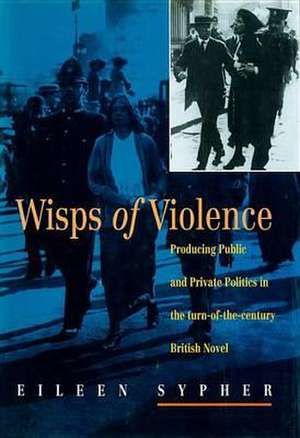Wisps of Violence: Producing Public & Private Politics in the Turn-Of-The-Century British Novel
Autor Eileen Sypheren Limba Engleză Hardback – 30 noi 1993 – vârsta până la 18 ani
Preț: 445.52 lei
Preț vechi: 500.58 lei
-11% Nou
Puncte Express: 668
Preț estimativ în valută:
85.25€ • 89.25$ • 70.54£
85.25€ • 89.25$ • 70.54£
Cartea se retipărește
Doresc să fiu notificat când acest titlu va fi disponibil:
Se trimite...
Preluare comenzi: 021 569.72.76
Specificații
ISBN-13: 9780860914365
ISBN-10: 0860914364
Pagini: 204
Dimensiuni: 162 x 241 x 21 mm
Greutate: 0.45 kg
Editura: VERSO
ISBN-10: 0860914364
Pagini: 204
Dimensiuni: 162 x 241 x 21 mm
Greutate: 0.45 kg
Editura: VERSO
Notă biografică
Eileen Sypher
Descriere
Interprets the image of turn-of-the-century politics produced in the fiction of writers such as Henry James, Joseph Conrad, Gertrude Dix and George Bernard Shaw. She examines the British novel as it tries to come to terms with the new politics, particularly in the area of gender relations.
